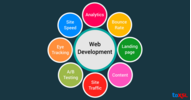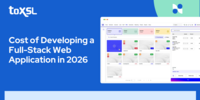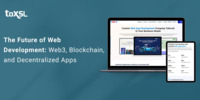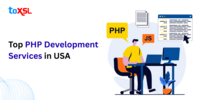- Jul 22, 2025
Share this post on:
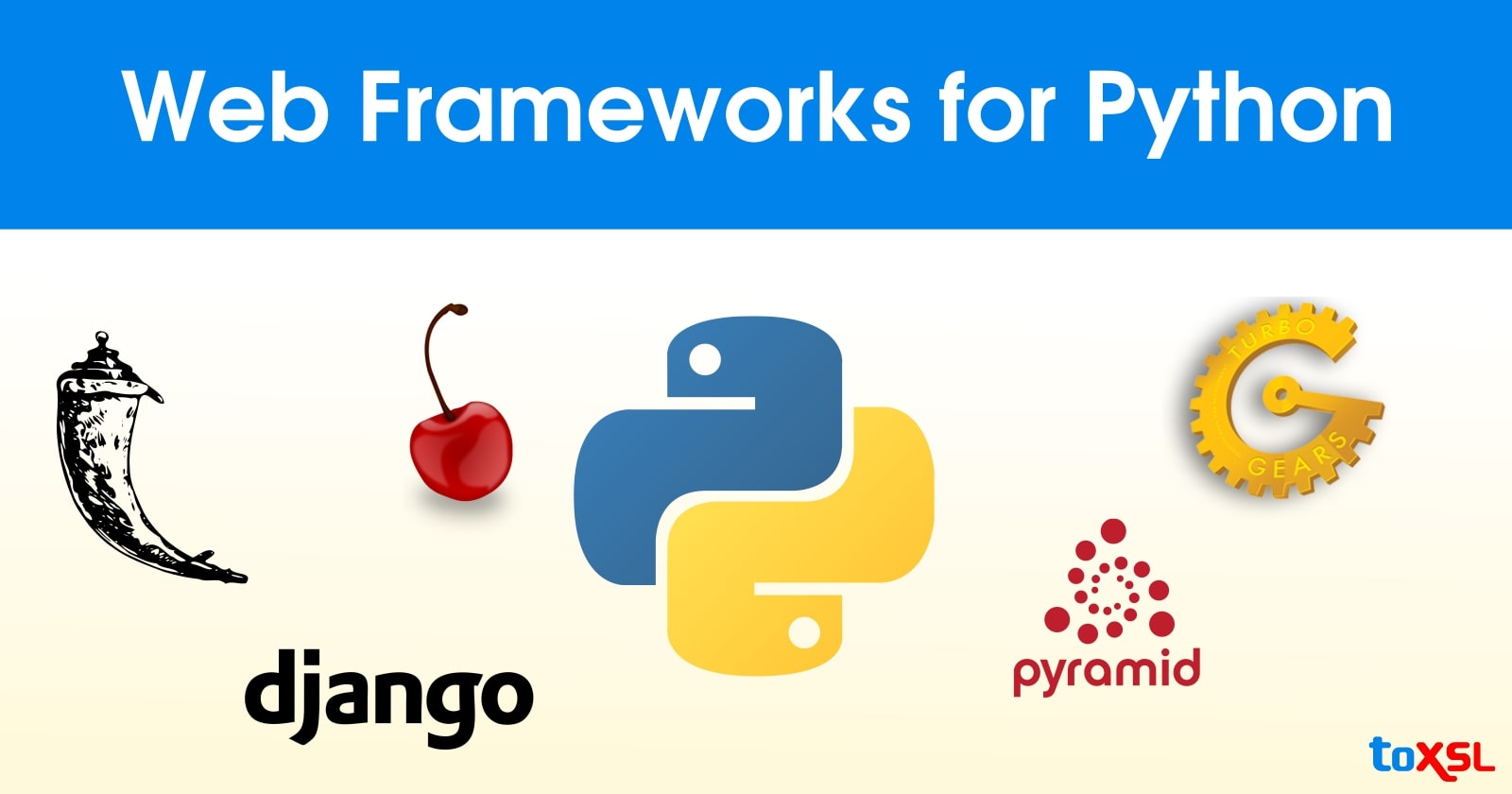
Python has long been one of the most preferred programming languages for web development, thanks to its readability, simplicity, and robust community support. When it comes to building web applications in Python, frameworks play a central role in speeding up development, enforcing structure, and simplifying repetitive tasks. Whether you're a startup building an MVP or an enterprise developing a scalable product, choosing the right framework can significantly impact performance, scalability, and maintainability. This article explores the most popular Python web development frameworks that are trusted by developers and companies worldwide.
Django
Django is undoubtedly the most widely used and full-featured web development framework in the Python ecosystem. Known for its "batteries-included" approach, Django provides everything a developer needs right out of the box. It includes an ORM (Object-Relational Mapping) system, an admin interface, user authentication, URL routing, form handling, and security features—all tightly integrated and well-documented. Django follows the MTV (Model-Template-View) architectural pattern and is ideal for developers who want to move quickly without sacrificing quality or scalability.
Popular websites like Instagram, Pinterest, and Disqus have used Django to handle millions of users, making it a proven solution for high-performance applications.
Flask
Flask is another highly popular Python web framework, often favored for its minimalistic and flexible design. Unlike Django, Flask does not come with built-in tools like an ORM or form validation by default, which gives developers the freedom to choose their own components. This lightweight, modular architecture makes Flask a great choice for microservices, APIs, and small to medium-sized applications. Developers appreciate its simplicity, ease of learning, and extensive documentation. Flask is widely used in startups and projects where development speed and customization are key. Applications like Reddit and Netflix have utilized Flask in various capacities, showcasing its versatility.
FastAPI
FastAPI is a modern and high-performance framework that has gained massive popularity in recent years, especially for building RESTful APIs and microservices. Built on top of Starlette and Pydantic, FastAPI is asynchronous by design and offers automatic generation of OpenAPI and JSON Schema documentation. It leverages Python type hints to validate data and generate API docs, making development faster and reducing bugs. Its performance rivals that of Node.js and Go-based frameworks, making it suitable for high-concurrency environments. FastAPI is becoming the go-to choice for developers building machine learning APIs, backend services, or modern web apps where speed and efficiency are crucial.
Pyramid
Pyramid is a flexible and scalable web development framework designed to work for both small and large applications. It strikes a balance between the minimalism of Flask and the full-featured nature of Django. Pyramid allows developers to start small with minimal dependencies and gradually scale up as the application grows. It offers support for both SQLAlchemy and ZODB, provides routing and authentication modules, and integrates well with front-end technologies. Pyramid is particularly appreciated in the enterprise world for its configurability and stability in large-scale projects. Though it may not be as beginner-friendly as Flask or Django, it remains a solid choice for experienced developers who need fine-grained control over their application stack.
Tornado
Tornado is a Python web framework and asynchronous networking library originally developed by FriendFeed, which was later acquired by Facebook. It is designed to handle thousands of simultaneous connections, making it an excellent choice for applications that require long-lived connections such as WebSockets, real-time updates, and live notifications. Tornado’s non-blocking network I/O makes it suitable for building high-performance, event-driven web applications. While it may have a steeper learning curve and fewer out-of-the-box features compared to other frameworks, it excels in scenarios that demand scalability and low latency.
Bottle
Bottle is a lightweight micro-framework designed for building simple web applications and APIs. It is a single-file framework with no external dependencies, which makes it perfect for small projects, embedded systems, or when you need to quickly prototype an idea. Despite its simplicity, Bottle supports routing, templating, form data handling, and integration with various web servers. Developers often choose Bottle for internal tools, IoT projects, or minimalistic REST APIs where performance and footprint are more important than complex features. It’s an excellent starting point for beginners exploring Python web development.
Web2py
Web2py is a lesser-known but mature Python web framework that emphasizes ease of use and rapid development. It includes its own IDE, web-based interface, and supports backward compatibility with earlier versions. Web2py follows a model-view-controller (MVC) pattern and includes features like form generation, role-based access control, and data abstraction layers. While it may not be as popular as Django or Flask, it has been around for many years and has a loyal user base. It’s particularly useful in academic, research, and government projects where stability and quick deployment are important.
Sanic
Sanic is a relatively newer Python framework focused on speed and asynchronous request handling. It is one of the first Python 3.5+ frameworks designed to take advantage of Python’s async/await syntax, allowing for non-blocking operations and high-speed performance. Sanic is often used for building fast RESTful APIs and real-time web services. Its performance is comparable to Node.js and other asynchronous platforms, making it a strong choice for developers who need to manage a large number of simultaneous connections efficiently.
CherryPy
CherryPy is a minimalist Python framework that has been around since 2002. It allows developers to build web applications in much the same way they would write any other object-oriented Python program. CherryPy comes with its own multi-threaded web server and has built-in support for sessions, authentication, and static files. While it may not be the first framework new developers turn to, it remains a powerful tool for those who appreciate clean, Pythonic code and a stable platform for web development.
Which Framework Should You Choose?
The right Python web development framework depends entirely on your project needs. If you’re looking for a fully-featured solution with a fast development cycle and built-in tools, Django is a strong candidate. For projects requiring more control and customization, Flask is a better fit. If performance and modern API development are your priorities, FastAPI or Sanic are excellent choices. For enterprise-level or scalable architecture, frameworks like Pyramid or Tornado might be more appropriate. Beginners or those working on small internal tools may find Bottle or Web2py more approachable.
Conclusion
Python’s ecosystem of web frameworks is rich, diverse, and continuously evolving. Each framework offers distinct benefits and is best suited for specific project types—whether you're building simple APIs, data-driven platforms, or large-scale enterprise applications. Django and Flask continue to dominate for their reliability and developer-friendly features, while FastAPI and Sanic are gaining popularity for their performance in modern asynchronous environments.
Choosing the right framework is only part of the equation. To truly bring your project to life, you need a team that understands your business goals, technology stack, and how to deliver scalable, secure, and maintainable solutions. That’s where ToXSL Technologies comes in. With deep expertise in Python web development and a strong portfolio of successful projects, ToXSL offers tailored solutions using frameworks like Django, Flask, FastAPI, and more. Whether you’re a startup looking to build an MVP or an enterprise planning a digital transformation, partnering with ToXSL ensures you get the right talent and technology from day one.
Let the right framework and the right development partner take your web application to the next level.





